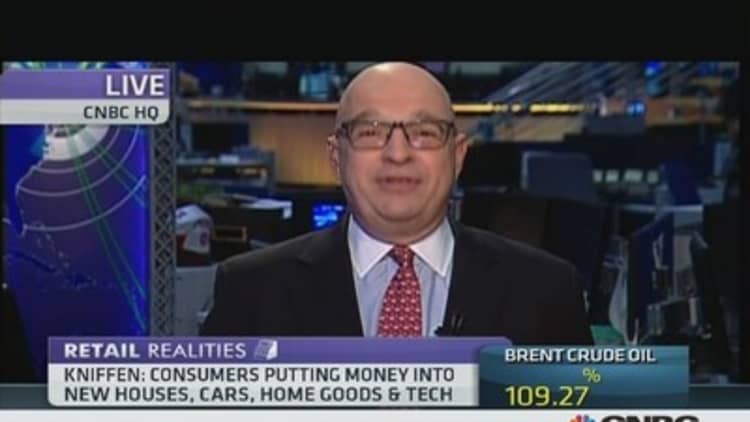If the looming debt ceiling fight in Washington, D.C. is not settled before a default on debt payments by the federal government, retail businesses will take a hard hit, Macy's CEO Terry Lundgren said during a public appearance in New York Friday.
Lundgren said he wasn't particularly concerned about the government shutdown but if the political impasse leads to a default, it will damage the anemic economic recovery and harm consumer confidence.
(Read more: Debt ceiling comes into focus as shutdown drags on)
"The government shutdown is a terrible thing, but it's not really impacting anybody," Lundgren said during a speech at the Society of American Business Editors and Writers fall conference. "If and when we have a default, we will feel that."
The U.S. Treasury Department on Thursday released a report that said a debt default could have "catastrophic" effects on the economy that would echo the financial crisis of 2008. Lundgren said that would be bad news for retailers.

"Retailers see it immediately because the consumer stops spending that day," Lundren said, recalling the collapse of Lehman Brothers and the resulting economic implosion in 2008. "It was brutal."
(Related video: Shutdown? What shutdown?)
Sales at Macy's slipped in the quarter that ended June 30, missing Wall Street estimates. Lundgren attributed the soft numbers to lingering weakness in the broader economy. He said higher end customers who own homes and have money in the stock market have done well in the economic recovery, while "mid-tier" customers are still struggling.
"They're not growing in terms of discretionary income," Lundgren said, noting the success of dollar stores. "With those pressures that consumer just wasn't spending in the second quarter."
He noted the success of dollar stores and said some Macy's customers had "traded down."
Still, Macy's has endured the recession better than some of its rivals: Its stock is around $44 a share, up nearly 70 percent in the last two years.
—By CNBC's Craig Giammona.

